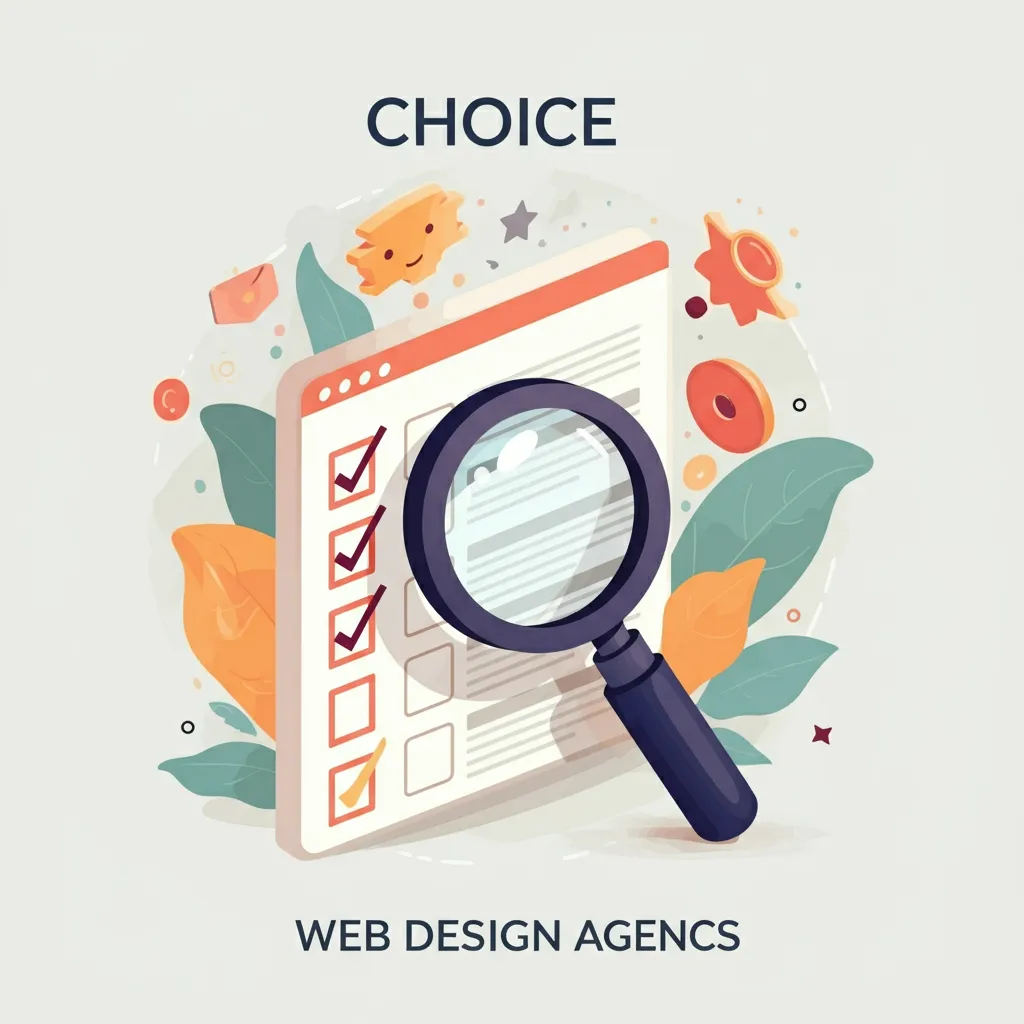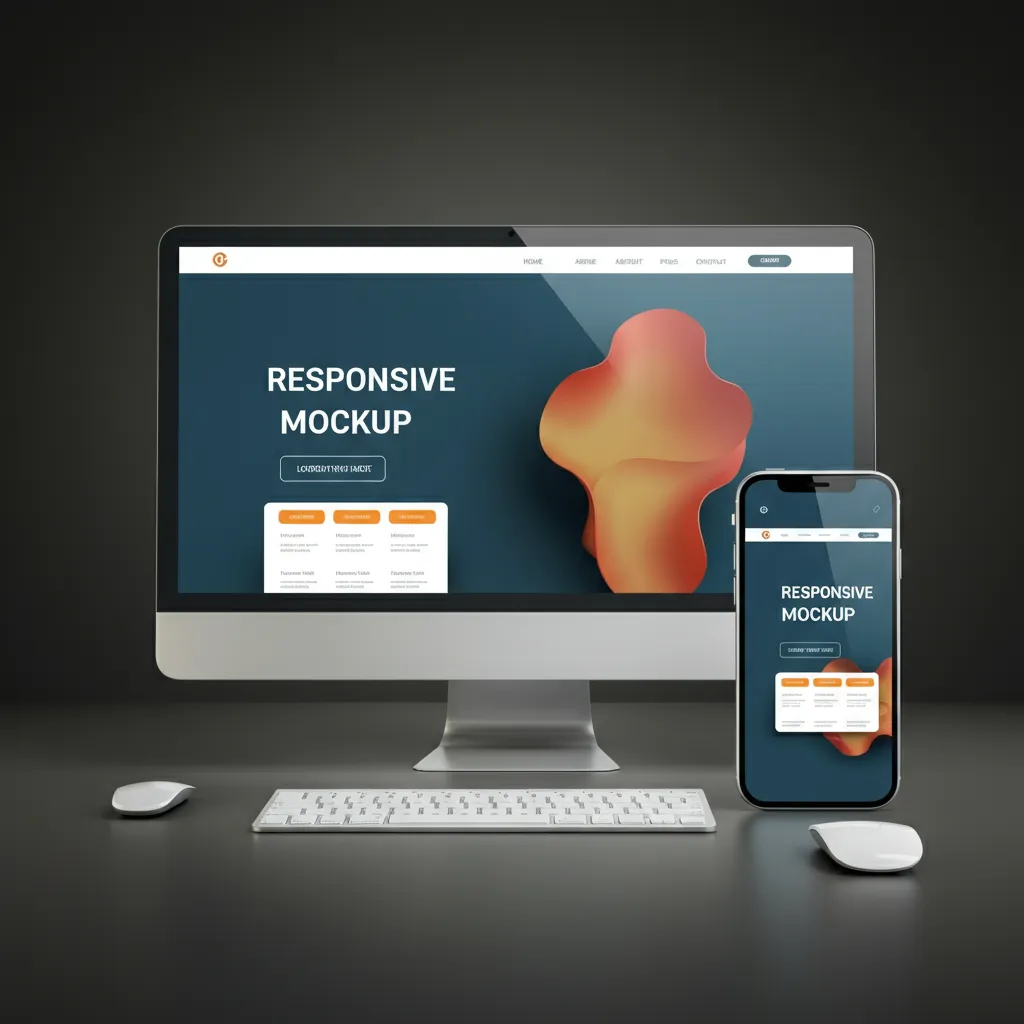Choosing the right web design firm is crucial to creating a website that aligns with your business goals, impresses your audience, and helps build your brand presence. The process can be daunting with so many options available, but selecting the right partner is essential for long-term success.
This guide will walk you through the key factors to consider and the steps to make an informed decision.

Why Selecting the Right Web Design Firm Matters
Your website is often the first interaction potential customers have with your business. A poorly designed site isn't just an eyesore it could harm your credibility, affect user engagement, and even hurt your search engine rankings.
On the other hand, a well-designed site provides an intuitive, user friendly experience that encourages action, whether it’s making a purchase, signing up for a newsletter, or contacting your team.
Choosing the right web design firm ensures that your site is effective, scalable, and tailored to your unique needs.
For additional insights, you can also explore this comprehensive guide on Average Cost of Website Development in 2025 .
1. Portfolio of Previous Work
The firm’s portfolio provides a clear view of their design capabilities. Look for diversity in style and functionality this demonstrates their ability to adapt to different industries and brand requirements.
Pay attention to how their designs align with usability principles, brand consistency, and visual appeal.
You may find portfolio samples on their website or ask for specific examples related to your industry.
For instance, if you run an ecommerce business, assess the design firm’s ecommerce projects for intuitive navigation, user experience, and integration of secure payment systems.
2. Experience and Expertise
An experienced web design firm doesn’t just bring technical skills they understand industry trends, user expectations, and best practices.
Look for firms with years of experience and a proven track record of delivering timely, high-quality results.
It’s also important to identify their specific expertise. For instance, does the firm specialise in responsive design, custom web development, or SEO-focused structures? Agencies with knowledge in your niche or industry have a better grasp of your audience and business needs.
3. SEO and Marketing Integration
Your website should do more than look good. It should be easy for users to find and structured to rank well in search engines.
Ask potential firms about their SEO capabilities, from site speed optimisation to mobile responsiveness and semantic HTML.
A good agency will incorporate SEO right from the planning stage, ensuring your website attracts relevant organic traffic.
4. Client Testimonials and Reviews
Online reviews and testimonials give you real-world insights into how the firm operates. Did past clients have positive experiences? Were deliverables met on time?
References not only support credibility but also highlight any potential red flags. Don’t hesitate to reach out to past clients for feedback if possible.
For detailed reviews, you can look at platforms like Clutch, which provides vetted client testimonials for web design firms.
5. Communication and Responsiveness
A successful web design project hinges on good communication. During your initial interactions, take note of how quickly the firm responds to emails or phone calls.
Do they ask questions to understand your business? Do they offer suggestions and show enthusiasm for your project? Clear and proactive communication is essential for aligning expectations and avoiding misunderstandings.
6. Scalability and Maintenance
Your website needs may grow along with your business. Choose a firm that can scale its solutions over time, whether it’s adding new pages, implementing e-commerce features, or integrating another CRM system.
Additionally, check if they offer post-launch support and maintenance to address future updates or issues.
Questions to Ask Potential Web Design Firms

Before signing a contract, interview your shortlist of agencies. Here are some essential questions to guide the conversation.
● What is your design process? A well-defined process ensures a structured approach from initial briefs to the final launch.
● What CMS (Content Management System) do you use? Popular systems like WordPress, Drupal, or Joomla allow smooth future updates.
● Can you provide examples of similar projects? A firm experienced with businesses like yours will have better insights into your needs.
● How do you measure success? Analytics, user engagement, and conversion metrics should factor into post-launch reviews.
● What’s included in the project scope? Get clarity on what the pricing covers—design, testing, SEO setup, or technical support.
Common Mistakes to Avoid
While selecting a web design firm, businesses often overlook critical aspects. Avoid these mistakes to secure a successful partnership.
1. Choosing Based Solely on Cost
While budget constraints are important, cheap services often come with hidden compromises like lacklustre designs, poor customer service, or limited scalability.
Instead, focus on value investing in quality often saves money in the long run.
2. Neglecting SEO and Usability
A visually stunning website is useless if it isn’t functional or doesn’t attract visitors. Prioritise firms that combine aesthetics with SEO, mobile optimisation, and intuitive user experiences.
3. Overlooking Long-Term Compatibility
Web design is rarely a "one-and-done" situation. Ensure the firm aligns with your long-term business needs, offers scalable solutions, and provides dependable post-launch support.
4. Not Researching Contract Terms
Read contracts carefully to ensure there are no surprises related to licensing, intellectual property, or maintenance costs. Some firms retain ownership of the source code, which can trap you with them.
Benefits of Hiring a Professional Web Design Firm
A professional design firm brings more than technical expertise they’re partners in your growth. Here are some key benefits.
● Skill and Expertise: Professional firms employ specialists in web design, SEO, and user experience, ensuring optimal results.
● Time Efficiency: Save time and effort with a dedicated team that handles everything from wireframes to deployment.
● Access to Resources: Professional firms provide access to advanced design tools, analytics, and insights.
● Scalable Solutions: Customised designs that adapt as your business grows.
● Credibility Boost: A sleek, functional website strengthens your brand and customer trust.
Final Thoughts on How to Select a Web Design Firm
Choosing the right web design firm requires careful consideration of their expertise, process, and compatibility with your goals.
Approach the selection process methodically—review portfolios, ask the right questions, and prioritise long-term benefits over short-term savings.
At New Web Order, we understand how daunting this decision can be. That’s why we are committed to delivering not just beautiful websites but also ones that serve your business goals effectively.
Contact us today to discuss your project and see how we can turn your vision into reality.
How to Select a Web Design Firm FAQ
Why is it important to hire a professional web design firm?
Hiring a professional web design firm ensures that your website is not only visually appealing but also functional, user-friendly, and optimised for search engines.
Professionals bring technical expertise, design skills, and knowledge of current trends to create a website that aligns with your business goals.
They save you time and effort, delivering a high-quality product that enhances your brand credibility and supports customer engagement.
What should I look for in a web design firm's portfolio?
When reviewing a portfolio, look for these key elements:
● Diversity: Does the firm showcase a variety of styles and website functionalities?
● Industry-specific experience: Have they worked with businesses in your sector or similar niches?
● User experience (UX): Check if the designs are intuitive, user-friendly, and mobile-responsive.
● Visual appeal: Look for modern designs that align with the type of brand image you want to project.
● Results-focused work: See if they mention improvements in metrics like traffic or conversions.
A strong, varied portfolio demonstrates a firm’s adaptability and capability.
How much does it typically cost to hire a web design firm?
The cost of hiring a web design firm varies widely depending on the project's complexity, features, and scope. Here's a general breakdown:
● Basic websites: £1,000–£5,000 (suitable for small businesses with minimal requirements).
● Intermediate websites: £5,000–£15,000 (for businesses needing custom designs and added functionalities).
● Advanced websites: £15,000–£50,000+ (e.g., e-commerce platforms, complex integrations, or enterprise-grade features).
Always ask for a detailed cost estimate to understand what’s included in their services.
How do I know if a web design firm is a good fit for my business?
To ensure the firm fits your needs, consider the following:
● Experience: Have they worked on similar projects or industries?
● Communication: Do they listen to your ideas and provide clear, prompt responses?
● Transparency: Are their pricing, timelines, and processes well-defined?
● Goals alignment: Can they articulate how their work will meet your business objectives?
● Post-launch support: Do they offer maintenance, updates, or additional services?
Schedule a consultation to gauge their expertise, enthusiasm, and compatibility.
What are the red flags to avoid when choosing a web design firm?
Be wary of the following red flags:
● Unrealistically low prices: These often indicate compromised quality or hidden costs.
● Lack of portfolio: Reputable firms should have showcases of previous work readily available.
● Poor communication: Slow responses or vague answers can lead to project delays and misunderstandings.
● Limited or outdated designs: Avoid firms with a cookie-cutter approach or designs that don't reflect modern trends.
No post-launch support: If they don’t offer ongoing maintenance, you may face challenges down the line.
A thorough vetting process helps avoid costly mistakes in your web design project.
If you’d like to learn more or discuss your specific needs, feel free to reach out to New Web Order for professional guidance!

